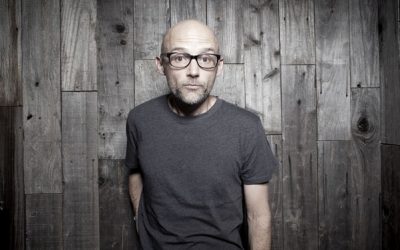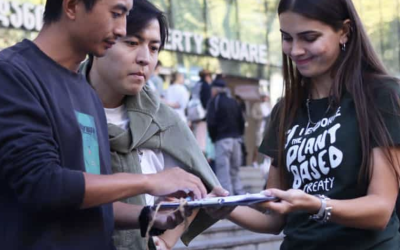Blog
The Amazon is on fire
February 21, 2025
This previous summer, we witnessed one of South America’s worst wildfire seasons in history, with the Amazon having more than 50,000 fire outbreaks. In the first nine months of 2024, there were 22 million hectares of land burned across Brazil, which is nearly the size of the United Kingdom.
Most of these fires have been no accident but set intentionally to clear to make way for cattle, pastures, and soy. This is happening despite the fact that the ecosystem in the region is the most biodiverse on earth.

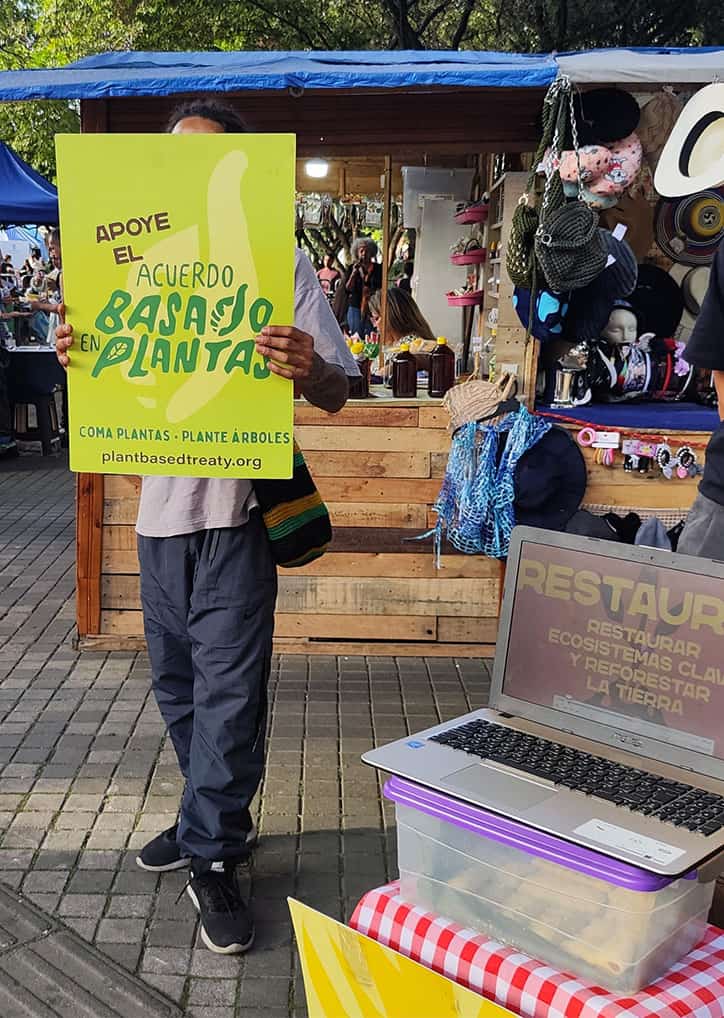
Esteban Acevedo lives in Colombia and is campaigning for a Plant Based Treaty
Esteban Acevedo lives in Colombia and is campaigning for Plant Based Treaty and Animal Save Movement. With a background in the financial sector, and today he is a dedicated activist for climate and animal justice, with a broad knowledge of the devastating situation and how alarming it is. Esteban describes how Colombia in recent years, has experienced increased deforestation and a big part of this is linked to fires. In the night, or when nobody sees, the forest is illegally burned, often to create pastures for cattle. Because when the forest is burned it is suddenly legal to use it to farm animals.
“The Amazon is far from the big cities, far from politicians and policymakers. Few give the problems enough attention, and the local community often relies on money from illegal acts and networks,” he says.
Esteban describes how Amazon has often become like a “lawless” land. Colombia is also the second worst country in the world for biome-environmental activity. A lot of people are killed every year just for defending the forest. Two years ago, there was an investigation proving that meat from Amazonas was sold in the biggest supermarket chain in Colombia. It was a big opportunity to work for change and Plant Based Treaty Colombia campaigned on it.
“But the problem is that not many believe that it is true. And the companies involved do everything they can to greenwash their business. The industry wants to control the narrative, and many people buy into that story.”
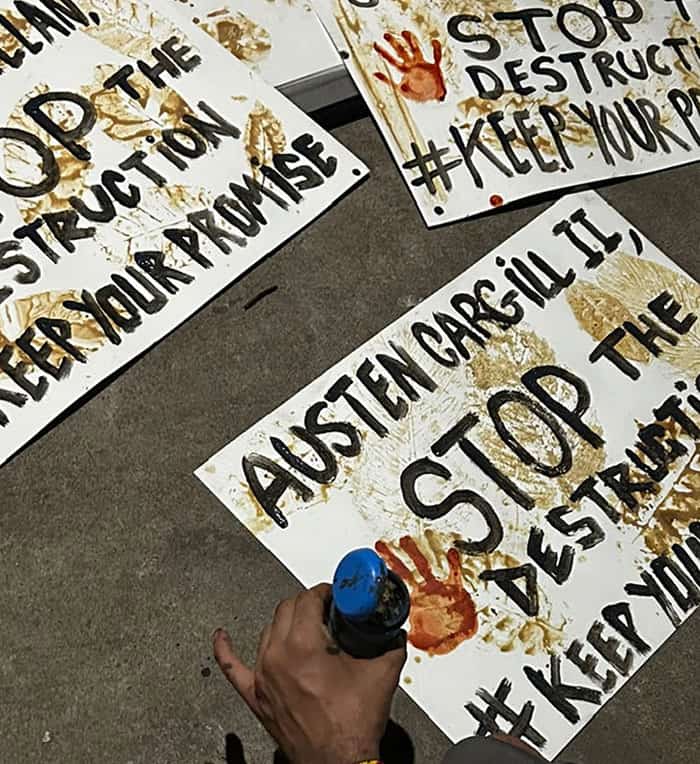
Banners being made for a protest action against Cargill
A new bill was recently suggested in The Colombian congress; that it should be mandatory to be able to track the origin of where the meat is produced. But the law never passed.
Targeting the meat industry
What we are seeing is how the international community, governments, and big companies are jeopardizing the most important region on earth for economic short term winnings. But in the long term the destruction comes with an extreme cost. The trees in the Amazon release 20 billion tones of water into the atmosphere per day, playing a critical role in global and regional carbon and water cycles. The Cerrado savanna in Brazil, is an area extremely rich and unique in biodiversity with a huge underground root system that stores a lot of carbon, covalent to a rainforest. It has deforestation rates three times higher than the Amazon. We are close to reaching a tipping point.
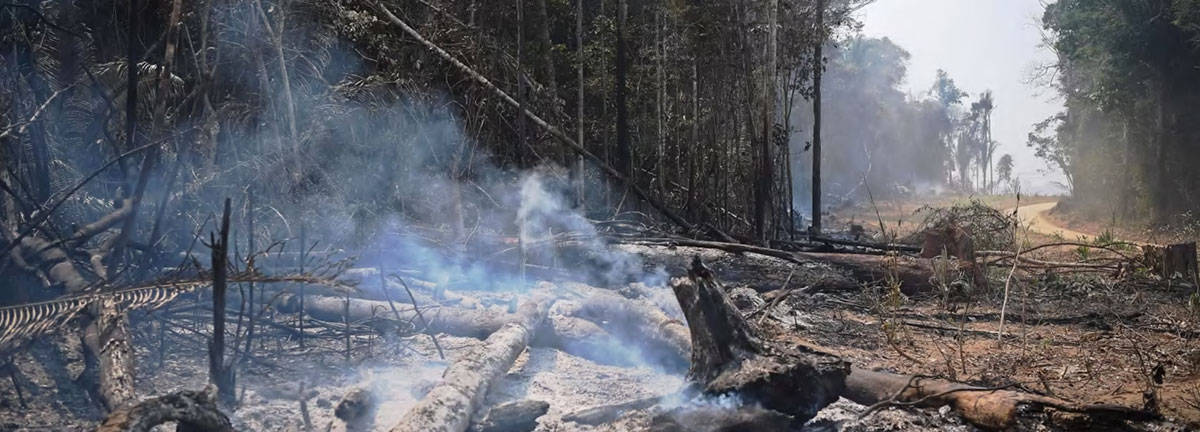
An example of deforestation to make way for grazing cows
Jordan McDonald is a Senior Associate at Mighty Earth, where she works at the hub of their global protein campaign. She emphasizes how animal agriculture, especially in the climate context, is not spoken about enough and is a crucial part of her work to highlight the need to shift towards more plant-based diets. Mighty Earth targets huge corporations like Cargill, Bunge, and JBS, some of the biggest meat companies in the world, to be held accountable for their complicity in the climate emergency.
“Big agriculture is wedded to its destructive practices. At Mighty Earth, we are aiming to transform industries by creating a ‘perfect storm’ of campaigns, investigations, communications and other tactics. We need stronger regulations and legislation to hold the meat industry accountable. Many companies, like JBS for instance, are not well known and can often fly under the radar. We also need urgent action by large retailers, such as Carrefour and Tesco, to clean up their supply chains from deforestation and promote a more sustainable, plant-based food system,” Jordan says.
Between 2009 and 2023 there has been more than 550,000 hectares of deforestation in Brazil, linked to 36 slaughterhouses owned by JBS, Marfrig and Minerva – Brazil’s three largest meatpackers. Despite the devastation, Jordan can see steps in the right direction. Carrefour, one of the biggest French brands, and the biggest retailer in Brazil, recently cut 177 suppliers from their meat supplier chain linked to deforestation.
Chemical deforestation
Mighty Earth recently launched its latest investigation, War on Nature, declaring it a war against Nature, waged by the meat industry.
What is highlighted in the study is a new way of degrading and killing forests and other ecosystems to clear more and more land for animal agriculture. The Pantanal, one of the world’s largest wetlands and a UNESCO World Heritage Site, is being targeted with toxic chemicals. In the report, Mighty Earth links meat packers JBS, Marfrig and Minerva to chemical destruction in Brazil, using a highly toxic “Compound 2,4-D”, also used in the Vietnam War.
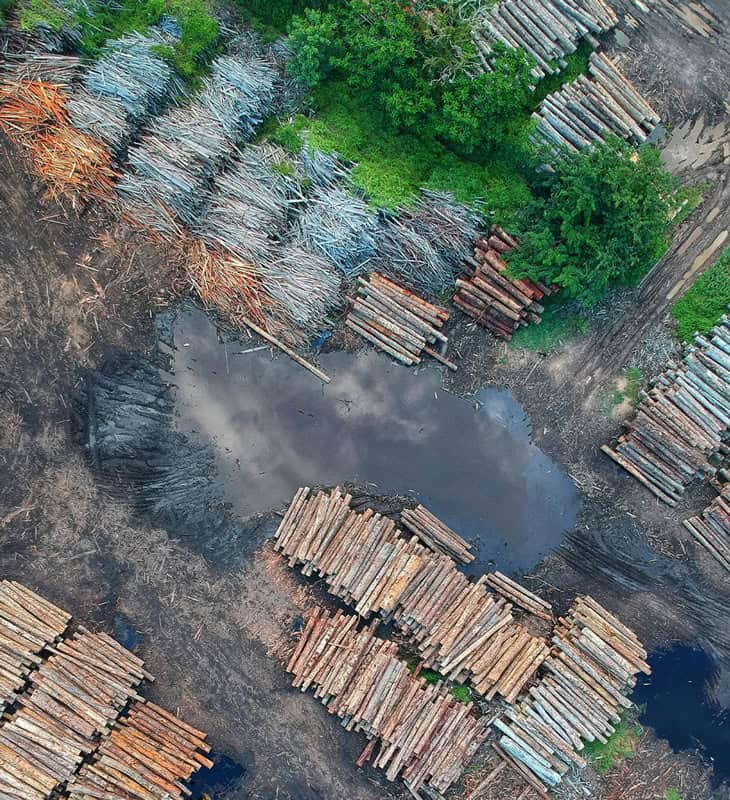
“We found that JBS and other meatpackers were linked to a cattle rancher in Brazil, who sprayed a key compound of the deadly defoliant “Agent Orange”, used in the Vietnam War, to deliberately kill trees and deforest 81,200 hectares of Brazil’s Pantanal. It is a technique used to clear huge areas of land, as in the case of fires. But using chemicals makes them largely undetectable by the satellite monitoring systems. When you have chemical deforestation it kills the trees slowly, over time, making it harder for satellites to detect,” Jordan says.
Mighty Earth advocates for robust policies that protect the environment and local communities on a global scale. It was a huge disappointment when the European Union proposed a 12-month delay to the EU Deforestation Regulation. Jordan describes how big agriculture has been lobbying hard to resist change and maintain business as usual.
“We have seen companies wanting to reap the benefits of appearing to be “sustainable” but show no signs of moving away from their destructive business practices. Take JBS, the largest meat company in the world, which claimed it would be net zero by 2040. And it’s raising money on the back of these claims, in so-called “sustainability-linked” bonds. Meanwhile JBS’ methane emissions exceed the combined livestock emissions of France, Germany, Canada and New Zealand. We want companies to set ambitious targets that lead to urgent and meaningful action.”
Banks, investment and insurance companies are also facing increased scrutiny about their links to deforestation. Jordan emphasizes that they need to redirect finance away from destructive industries such as industrial meat and towards more sustainable investments.
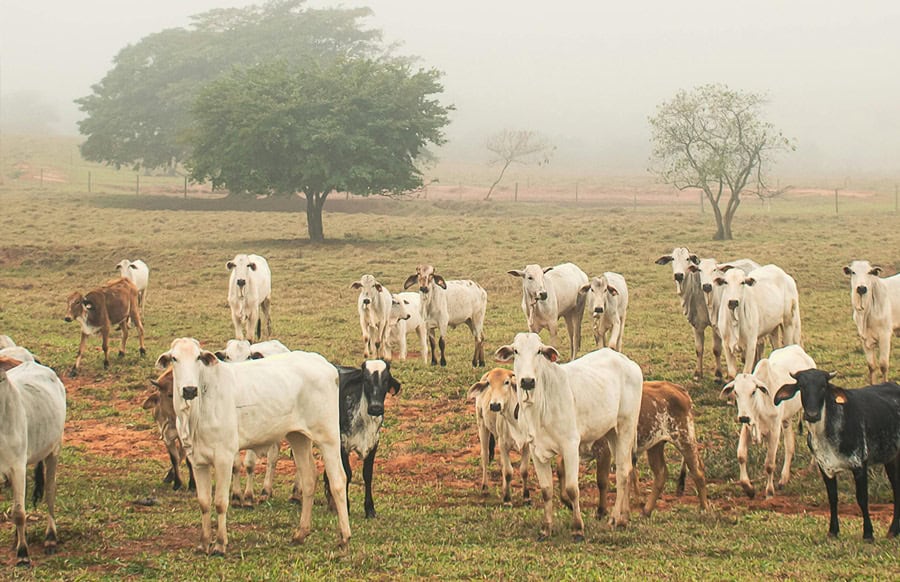
“Today, big banks and financiers are funding a lot of these meat and soy companies, which are responsible for the destruction of the Amazon and Cerrado. Barclays for instance is the biggest backer of JBS – the world’s worst Amazon deforester. This flies in the face of Barclays own deforestation policies.”
A personal message to the Cargill family
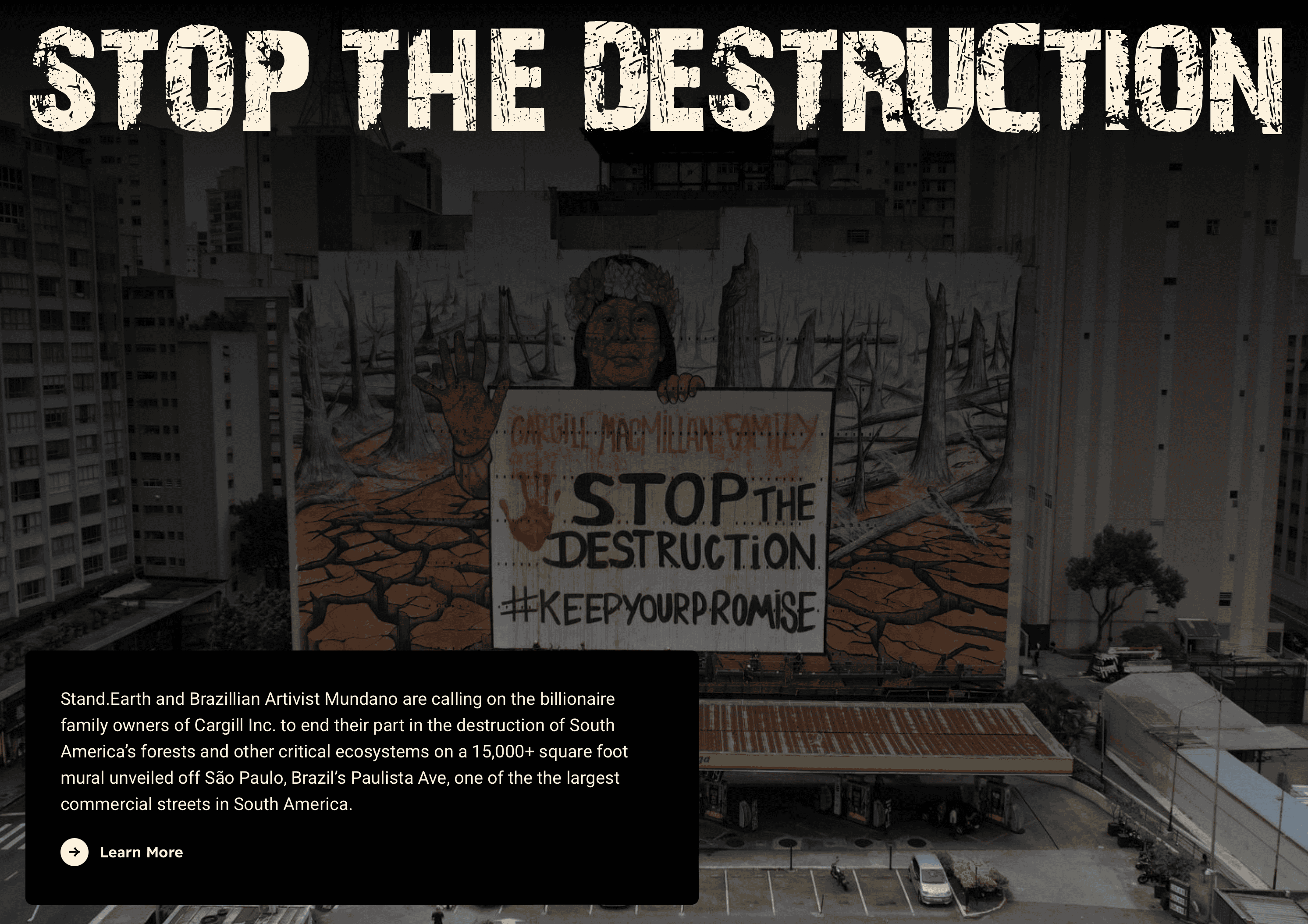
An example of how companies operating in the Amazon can be targeted, is by the Stand.earth campaign Burning Legacy, engaging with the Cargill family. Mathew Jacobson is the Campaign Director at Stand.earth with longtime experience in highlighting the devastation Cargill has caused. He describes how big companies such as JBS and Cargill are providing financial incentives to set the fires for their own financial benefit. 80% of the soy planted in these areas goes to feed animals in industrial farming in Europe and China.
In November this year, Mathew Jacobson travelled across the US, to different members of the Cargill family with a personal message.
“The posters are created by Indigenous people, the Munduruku, written in the ashes of forest that were gathered throughout South America from forest burned to make way for plantations. They call the family owners of Cargill to keep their commitment and end the destruction of the forest.”
Cargill has pledged that by the end of 2025, they will eliminate all deforestation and land conversion from their South American supply chain. “That is what we want them to do. We want them to ensure that they are not providing an incentive for people to burn forest down in order to grow soy. Unfortunately, Cargill has a long-standing reputation of not keeping their promises, so we are keeping the pressure on.”
Mathew believes as long as there’s a profit to be made in setting fire to convert forests into plantations, people will continue to do it.
“That financial incentive is being provided by the big traders like Cargill who buy the soy from them” he says. “It is a terrible and reinforcing cycle. You have the fires that are being set, in order to make way for industrial agriculture, and then you have industrial agriculture that is exacerbating global warming, leading to bigger fires.”
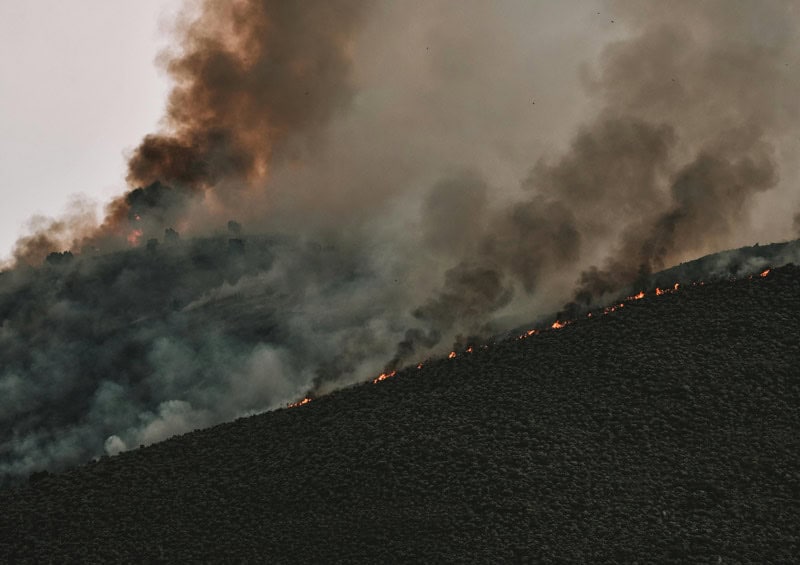
The impact on the people living in the Amazon has been devastating, and the pressure on Indigenous land keeps increasing. People are burning the land and taking it over, and the Indigenous people don’t have the strength to resist the farmers who are coming in and displacing them from their lands.
“It is important to note that studies have shown that if they were to regenerate the existing land that has already been degraded, that there is already enough previously degraded land that they could be regenerating for agriculture instead of burning more forest down,” Mathew says.
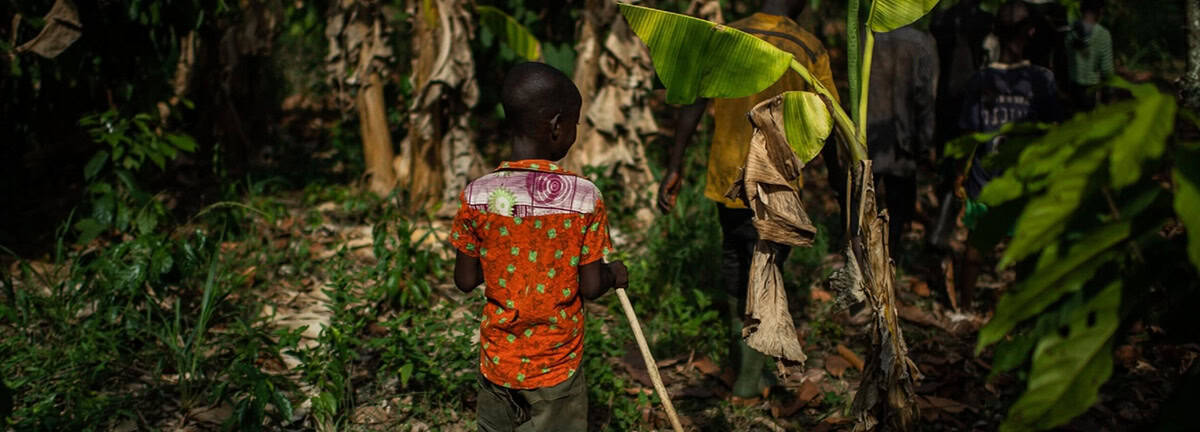
The impact on the people living in the Amazon has been devastating, and the pressure on Indigenous land keeps increasing. People are burning the land and taking it over, and the Indigenous people don’t have the strength to resist the farmers who are coming in and displacing them from their lands.
Cargill is also a driving force behind the proposed construction of the Ferrogrão mega-railway, which would carve a destructive path through over 600 miles of the Amazon rainforest. Today 600 square miles a year are being cleared yearly just for soy, in Brazil.
“People are dependent on the current system, and they don’t want to change. They are looking for ways to keep things the same without making the changes as they need to. But this is destroying the health of the global community. At one point or another, the changes have to be made, whether we like it or not,” Mathew says.
The solution is a plant-based food system
Despite the climate emergency we witness in the Amazon, hardly any major stakeholders are advocating for change. But solutions exist, and it is something Jordan McDonald is highlighting at Mighty Earth.
“First of all, we need to stop deforestation and ecosystem destruction. That’s where we focus a lot of our attention”, Jordan McDonald says. ”Next step is to restore and regenerate these areas that have been cleared already. Not only would that help restore the ecosystems and the wildlife in these ecosystems. We know that these also are huge carbon stores. It will have a double effect of storing carbon and help us resolve our climate crises.”
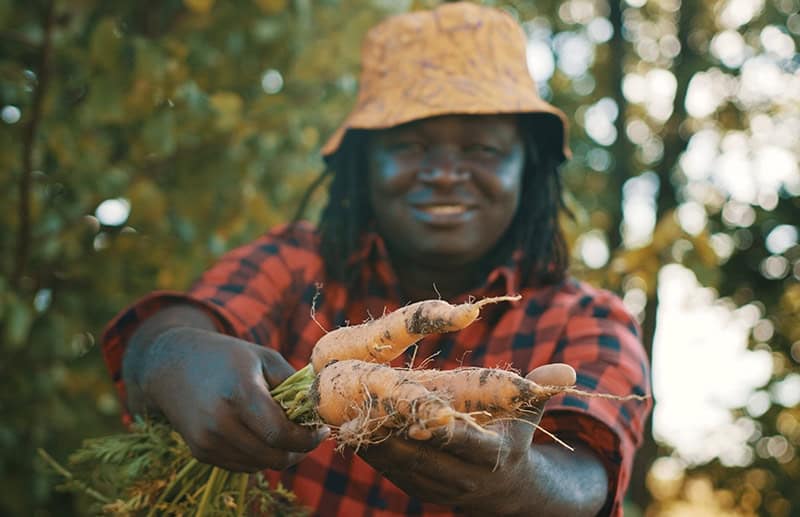
Shifting towards plant-based food is crucial, she emphasizes, and they are lobbying towards different stakeholders in this regard.
“We really need to take urgent action now. We need to transform the food system, shifting towards a more sustainable, plant-based diet. It is the single biggest thing that people can do to reduce our climate impact. And we think there is a huge potential there. We are also trying to use retailers and food services to educate and help and drive consumers towards a plant-based diet.”
What is an opportunity is that methane emissions are the second largest source of food emissions.
“The biggest source is deforestation, and the second is methane emissions. Largely from cows. Today, we have 1.5 billion cows on earth, 900,000 slaughtered daily, which is hugely saddening. But this is also an opportunity to reduce emissions quickly and something we focus a lot on.”
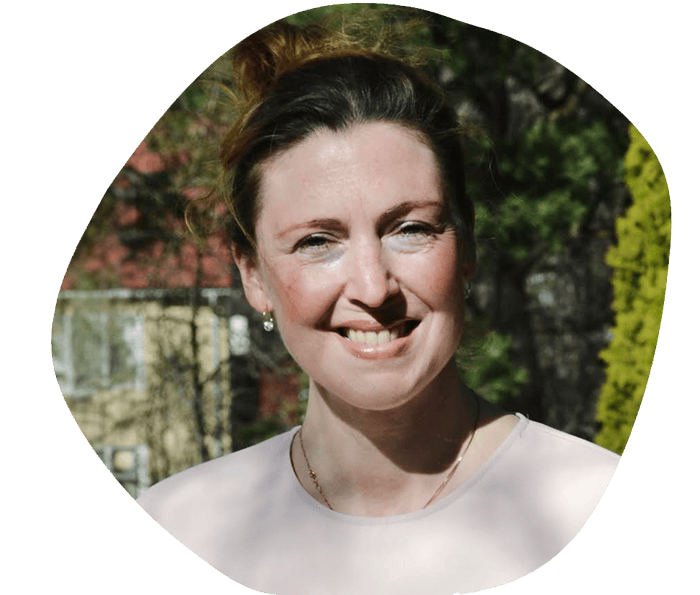
Anne Casparsson is a writer and ethicist, who has worked with communication and journalism in different capacities, for more than twenty years. She writes about animal rights, veganism, sustainability, justice, and peace related issues. Anne is based in Stockholm where she lives with her family. She is a dedicated voice for the animals.

Anne Casparsson is a writer and ethicist, who has worked with communication and journalism in different capacities, for more than twenty years. She writes about animal rights, veganism, sustainability, justice, and peace related issues. Anne is based in Stockholm where she lives with her family. She is a dedicated voice for the animals.
More from the blog
Ten Plant Based Treaty Celebrity Endorsers Making A Difference
By Miriam Porter
Kickstart Spring With A Nourishing Green Smoothie By Dr. Brooke Goldner
By Miriam Porter
From Global Advocacy To Menu Changes: Plant Based Treaty’s Goals For 2025
By Miriam Porter

